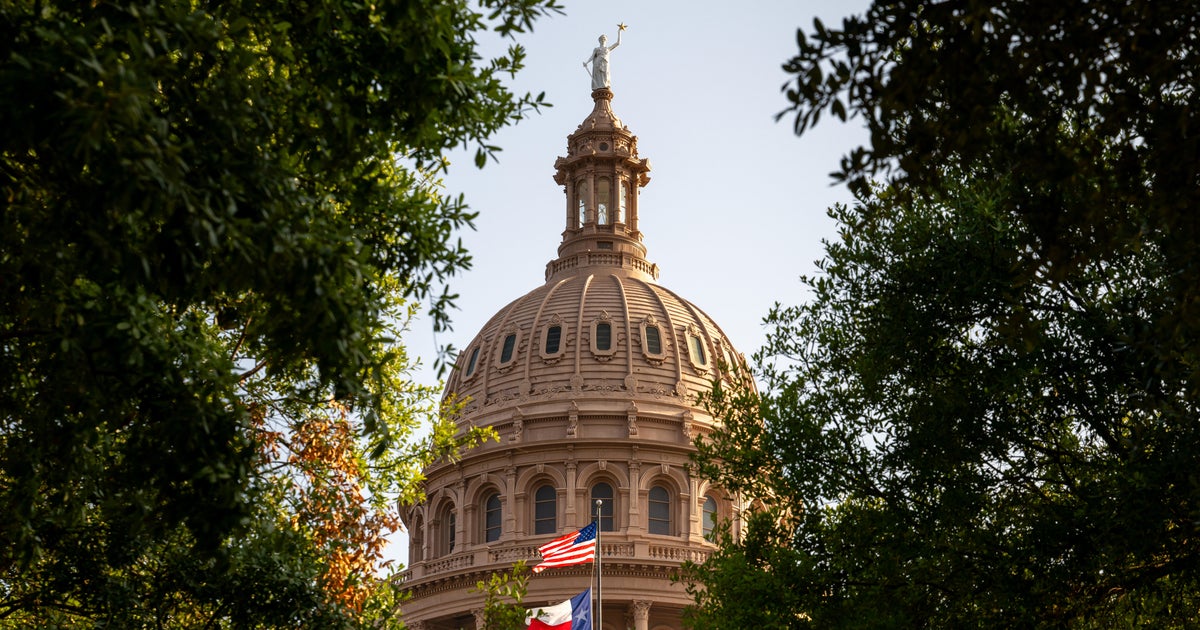
The Texas House of Representatives gaveled back into session Wednesday morning with the controversial proposal to redraw congressional maps up for a vote after Democrats fled the state to protest the earlier attempt to bring the bill to the floor.
State Rep. Todd Hunter, the lead author of proposed Texas redistricting legislation, said on the House floor on Wednesday that the “underlying goal of this plan is straightforward: improve Republican political performance.”
Texas Republicans took on the rare mid-decade redistricting last month after a push from President Trump and U.S. House Speaker Mike Johnson to maintain the GOP’s razor-thin majority in the House. Under the proposed redistricting plan, Republicans could pick up as many as five seats.
The Texas Legislature’s Republican majority has worked quickly to push the measure through the House, after Democrats broke quorum and left the state for two weeks, stalling all action in the house and killing the first special session.
Gov. Greg Abbott called a second special session hours after the first one was adjourned on Friday, and the Democrats who left the state returned to the House chamber at noon on Monday. That evening, HB 4 cleared the House committee on redistricting by a vote of 12-8, along party lines.
The bill needs to pass two more votes from the entire House before advancing. The final vote could happen on Wednesday as well.
On Wednesday, Democratic state Rep. Chris Turner said on the House floor the proposed redistricting legislation is illegal and racially discriminatory. Republicans have refuted this claim, arguing that the Supreme Court has found that partisan gerrymanders are legal and that is the goal of the redistricting.
The redistricting bill has also passed from the Texas Senate’s committee on redistricting, and is on the agenda for the full Senate on Thursday.
Texas Democrats protest police escorts
When the House reconvened, most Democratic members were free of police escorts that have been with them since Monday afternoon.
In an attempt to ensure that Democrats do not try to break quorum again, Republican House leaders would only allow the members who left the state to exit the House chamber if they agreed to a DPS escort.
While most Democrats agreed, state Rep. Nicole Collier of Fort Worth refused. She was locked in the House chamber for a time and eventually also allowed to go to her Capitol office. On Monday, Collier asked a state court to allow her to leave, alleging she’s facing “illegal restraint by the government.” The court has not yet acted on the filing.
Some other Democrats joined Collier on Tuesday, ripping up their signed agreements for the DPS escort and staying the night.
It is not yet clear whether Speaker Dustin Burrows will impose DPS escorts on Democrats at the end of Wednesday’s session.
What else is on the Texas House special session agenda
Republican state leaders are moving fast on the special session, aiming to pass all of Abbott’s priority items and adjourn before the Labor Day weekend.
That leaves only 10 days to pass redistricting and a slew of other bills, including funding for disaster relief in the wake of last month’s deadly Hill Country floods, property tax relief and further restrictions on abortion.
Those measures are all expected to pass due to overwhelming Republican support. Some items will be bipartisan.
One item on Abbott’s list could run into some difficulty: Regulating cannabis products derived from hemp. During the regular session, the Legislature passed a total ban on any products containing THC.
Opponents argued that if the bill became law, it would force thousands of people out of their jobs and cause billions of dollars in economic losses for the state from what has become a booming industry. They also argue it would harm veterans and others who use THC instead of opioids to treat chronic pain, forcing them to buy from drug dealers to get the same relief.
Abbott vetoed the total ban, calling for stricter regulation instead.
The Senate has already passed another version of their total ban of THC. The House version, HB 6, only prohibits the sale of any consumable hemp-derived products to people under 21. HB 6 has not yet been through committee.
